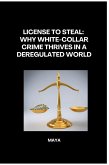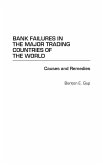Deregulation in banking and finance may hold promise for consumers, but what actually seems to be developing is trouble. Large banks are combining into small clusters of mega-banks with national and global reach, supported by government safety nets premised on fears they are too big to be allowed to fail. One result, among several, is that retail banking suffers. Shull and Hanweck evaluate existing bank merger policy and offer workable proposals for new legislative actions that would enhance the benefits of bank mergers without exacerbating the weaknesses. They review the historical role of governments in protecting banks from competition, then the modern policy that promotes competition, and present a model to explain and highlight the problems that today's policies are causing. In the end they turn to their own research and conclude that while a special bank merger policy is still warranted, it needs to be adapted in ways that would rein in the trend toward bigness and soften the impact this has domestically and internationally. A far reaching study essential for executives in all corners of the banking and financial services industry, academic and government researchers, and teachers of business, finance, and public policy. Many argue that deregulation and technological change have so intensified competition among banks that bank mega-mergers should cause little concern. Shull and Hanweck conclude, however, that a special bank merger policy is still warranted but it needs to be adapted to the way things are today, mainly, the impact that larger banks are having domestically and on the international scene as well. They provide a history of how governments in the U.S. and elsewhere sought to suppress bank competition; then, the unique procompetitive policies that developed in the second half of the Twentieth Century, including the introduction of antitrust standards and deregulation. From their theoretical and empirical evidence they show that the newly combined banks are competitively suspect. From other evidence they find that pricing of retail banking services in local markets does not reflect the improvements that deregulation and rapid technological change have led us to expect. They also describe how current bank merger policy, implemented by the Federal Reserve, other Federal banking agencies and the Justice Department, facilitates the growth of large banks and augments the new structural configuration. Can these problems be solved? Shull and Hanweck believe they can be and propose detailed, workable changes in public policy to do so.
Hinweis: Dieser Artikel kann nur an eine deutsche Lieferadresse ausgeliefert werden.
Hinweis: Dieser Artikel kann nur an eine deutsche Lieferadresse ausgeliefert werden.








